In December, the Pure Land Buddhist Centre in Toowoomba (Queensland Australia) hosted a major conference seeking friendship amongst religions. Here are the slides from a talk that I delivered. I hope you like them. The text of the talk follows the slides.
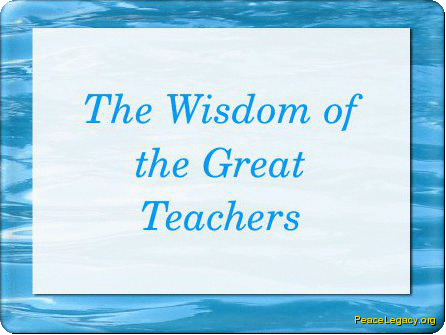
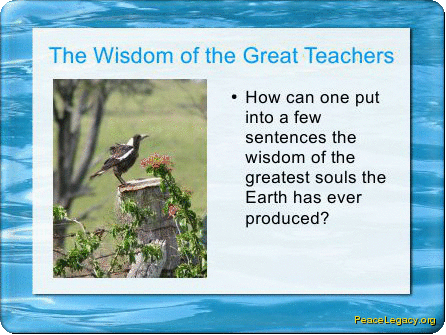
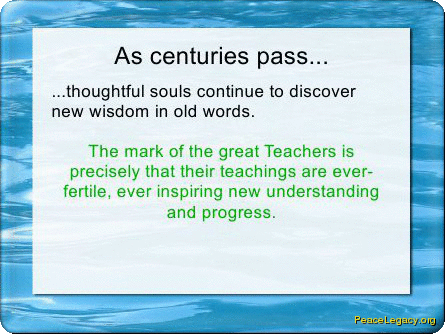
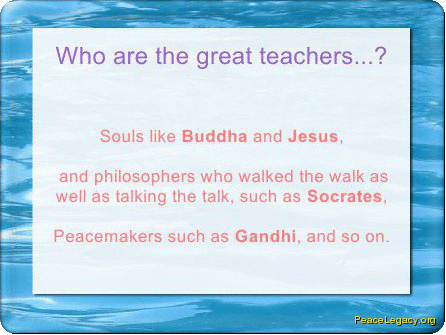
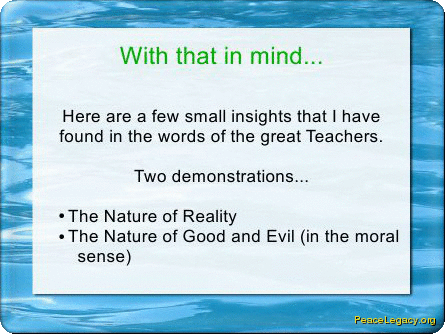
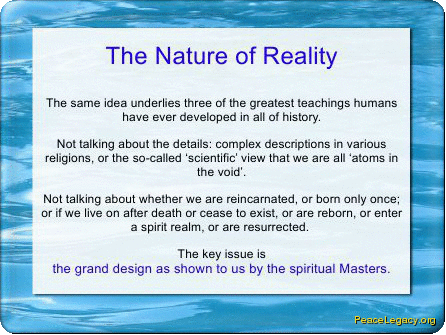
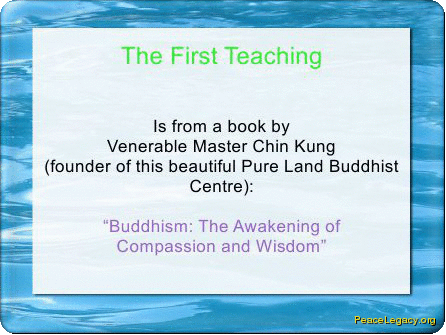
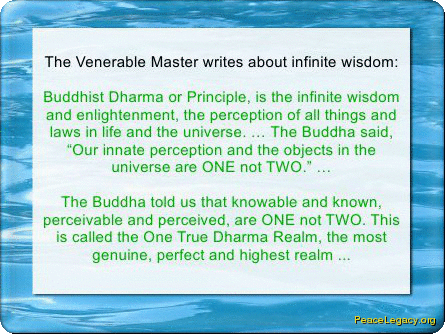
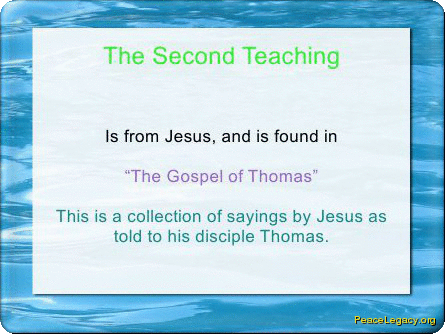
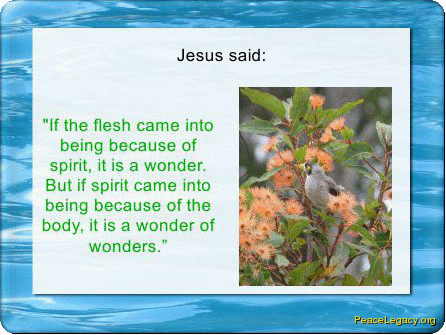
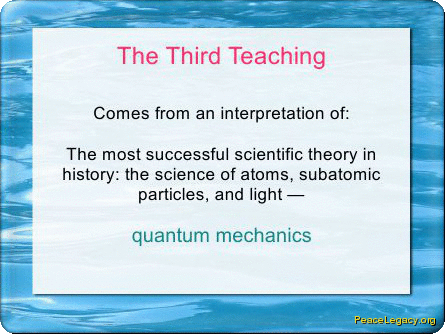
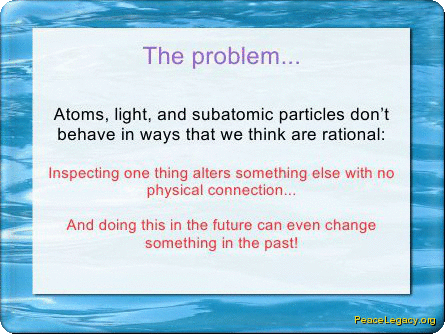
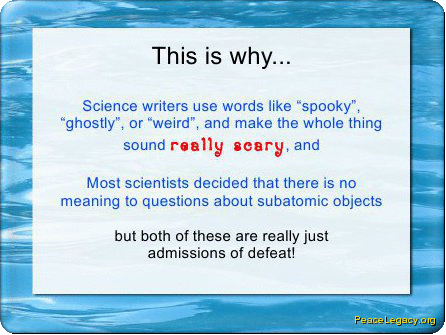
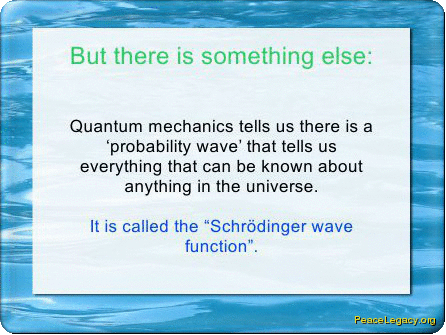
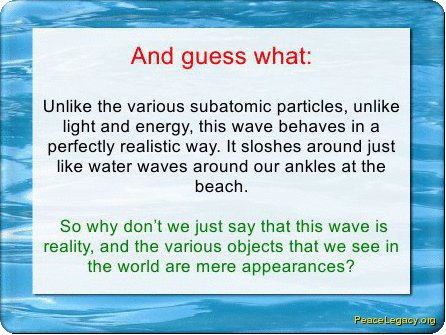
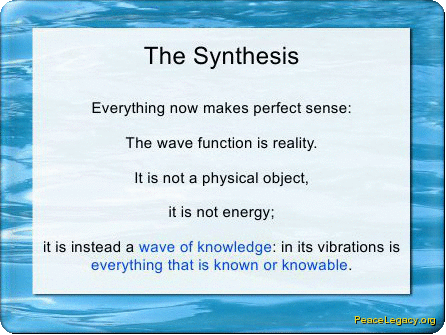
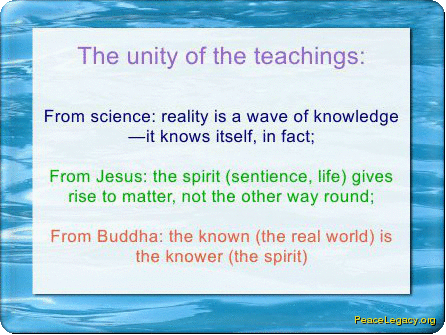
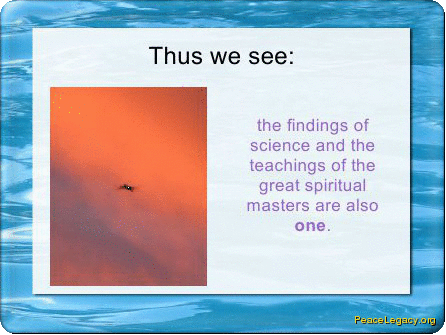
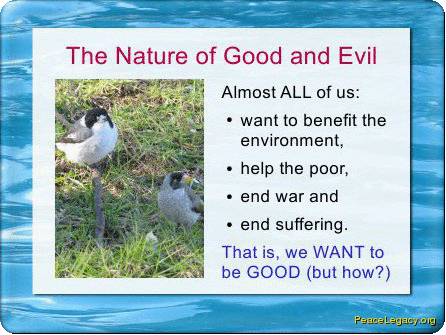
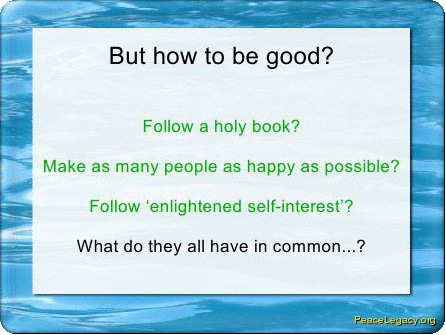
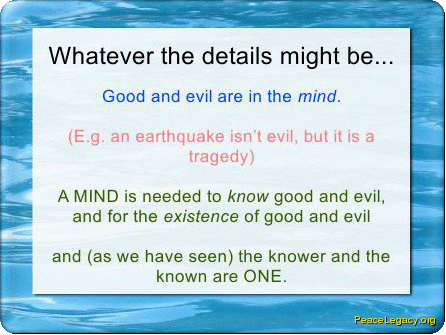
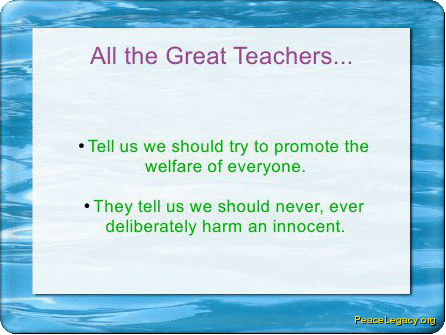
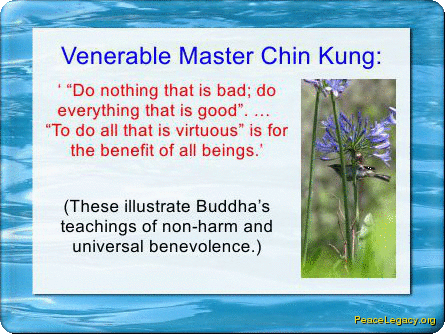
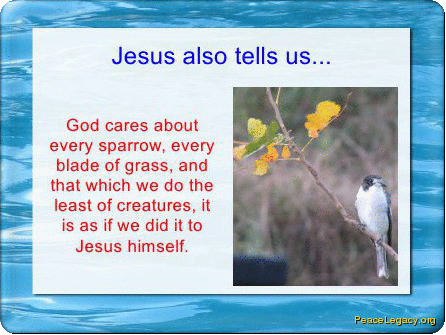
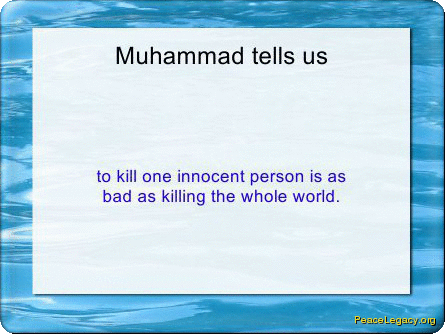
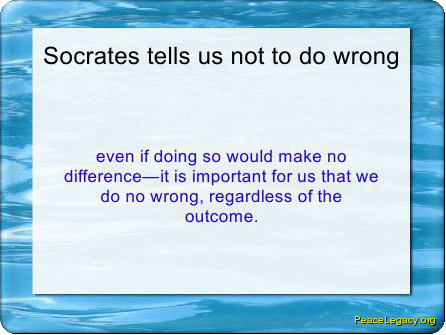
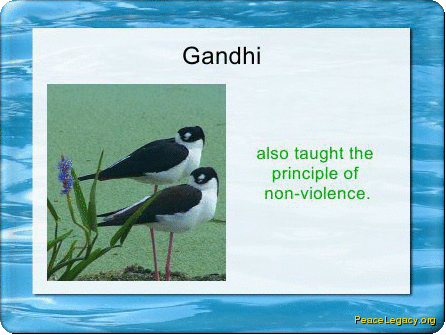
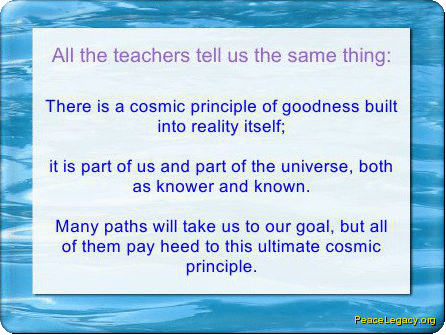
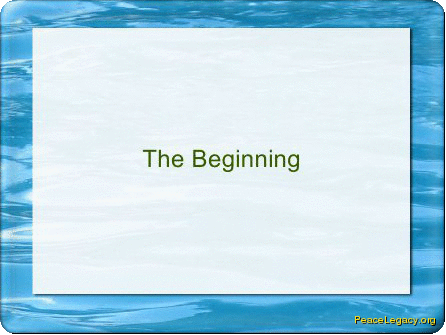
The Wisdom of the Great Teachers
How can anyone put into a few sentences the wisdom of the greatest souls the Earth has ever produced? As centuries pass, thoughtful souls continue to discover new wisdom in old words. The mark of the great Teachers is precisely that their teachings are ever-fertile, ever inspiring new understanding and progress.
Who do I have in mind? I am thinking of souls like Buddha and Jesus, and philosophers who walked the walk as well as talking the talk, such as Socrates.
With that in mind, today I want to share with you a few small insights that I have found in the words of the great Teachers. I shall do this with two demonstrations.
The first of these is:
The Nature of Reality
I am going to show you that the same idea underlies three of the greatest teachings humans have ever developed in all of history. Now anyone can object, even before I say a word, that no two religions seem to agree on the nature of reality—not to mention the so-called ‘scientific’ view that we are all ‘atoms in the void’. Yes, for sure, some say we are reincarnated, some say we are born once; some say when we die cease to exist, some that we are reborn, or enter a spirit realm, or are resurrected.
But I am not talking about details such as these, but rather about the grand design as shown to us by the spiritual Masters.
The First Teaching
So now for the first of the three teachings I wish to highlight. Venerable Master Chin Kung, through whose dedication and work this beautiful Pure Land Buddhist Centre has come into being, wrote a short book titled “Buddhism: The Awakening of Compassion and Wisdom”. In the introduction itself, before he moves on to the various details and elaborations of his message, the Venerable Master tells us about infinite wisdom, and here is what he says:
Buddhist Dharma or Principle, is the infinite wisdom and enlightenment, the perception of all things and laws in life and the universe. … The Buddha said, “Our innate perception and the objects in the universe are ONE not TWO.” …
The Buddha told us that knowable and known, perceivable and perceived, are ONE not TWO. This is called the One True Dharma Realm, the most genuine, perfect and highest realm as explained to us in the Flower Adornment Sutra.
The Second Teaching
The second great teaching I came across some years ago, and it is from Jesus. But you won’t find it in the Bible; it is in one of the works that was suppressed for over a thousand years, and survived through an almost miraculous sequence of events. It is in the Gospel of Thomas. This is a collection of sayings by Jesus as told to his disciple Thomas. And it includes this remarkable passage:
Jesus said, "If the flesh came into being because of spirit, it is a wonder. But if spirit came into being because of the body, it is a wonder of wonders.”
I’ll explain what I think this means shortly.
The Third Teaching
Our first two teachings came from great teachers; the third is perhaps better called a great discovery. It is the findings of modern science.
The most successful scientific theory in history is the science that describes the behaviour of atoms, subatomic particles, and light—namely quantum mechanics.
Most people who have an interest in science will be aware that atomic and subatomic things behave in very strange ways. They can be in two places at once—as long as you don’t look at them! Or they can behave like a wave or a particle depending on how you look at them. This is why almost every popular article on the subject uses words like “spooky”, “ghostly”, or “weird” in the very first paragraph.
But quantum mechanics also tells us something else: there is a ‘probability wave’ that tells us everything that can be known about anything in the universe. It is called the “Schrödinger wave function”. Unlike the various subatomic particles, unlike light and energy, this wave behaves in a perfectly realistic way. It sloshes around just like water waves around our ankles at the beach. So I ask: why don’t we just say that this wave is reality, and the various objects that we see in the world are mere appearances?
The Synthesis
And guess what: if we do that, everything makes perfect sense. The wave function is reality. And that reality is not a physical object, it is not energy in the scientific sense; it is instead a wave of knowledge: in its vibrations is everything that is known or knowable. We can now incorporate Jesus’s teaching: matter does not give rise to the spirit, rather the spirit gives rise to matter. We are, in essence, spirit. The fundamental reality is knowledge, which is a mental or spiritual thing, not a material thing. The only reality of the material world is that it is the appearances presented to the spiritual mind. As Venerable Master Chin Kung points out from Buddha’s teachings, the known (the reality behind appearances) is the knower (the knowledge in the mind) are indeed one, not two.
Thus we see that the findings of science and the teachings of the great spiritual masters are also one, not two.
The Nature of Good and Evil
For the second of my two demonstrations of the wisdom of the great teachers, I will briefly talk about the difficult issue of the nature of good and evil. (And here I must stress that I am talking about ‘good’ in the moral sense, of a good will, not ‘good’ in the practical sense of good fortune, good luck, and so on.) I believe most people want to be good. We want to benefit the environment, help the poor, end war and suffering. Except for a very, very few afflicted individuals, who does NOT want these things?
But just as we saw with the nature of reality, the prescriptions for how we should behave to get the best outcomes (that is, how in detail DO we do or be good?) also vary as much as our opinions on reality.
Some people say we should do whatever a certain holy book says. Others say we should make as many people as happy as possible. Others say we should follow ‘enlightened self-interest’.
But here is one thing all these viewpoints have in common: whether something is ‘good’, in the moral or ethical sense, is a question about our minds. An earthquake isn’t evil—nor is it good—it simply is, and we have to deal with the consequences. A mind is needed before something can be morally good or evil, and as we have seen, the mind is the basic nature of the knower and the known, which are ONE.
And there is more. I noticed some years ago that all the great teachers tells us these two things:
-
They tell us we should try to promote the welfare of everyone.
-
They tell us we should never, ever deliberately harm an innocent.
As examples of the teachings of Buddha, Venerable Master Chin Kung tells us (p70): ‘ “Do nothing that is bad; do everything that is good”. … “To do all that is virtuous” is for the benefit of all beings.’ These illustrate Buddha’s teachings of non-harm and universal benevolence.
Jesus also tells us that God cares about every sparrow, every blade of grass, and that what we do to the least of creatures, it is as if we did it to Jesus himself.
Muhammad tells us that to kill one innocent person is as bad as killing the whole world.
Socrates tells us not to do wrong, even if doing so would make no difference—it is important for us that we do no wrong, regardless of the outcome.
Gandhi also taught the principle of non-violence.
All these teachers tell us the same thing: that there is a cosmic principle of goodness built into reality itself; it is part of us and part of the universe, both as knower and known. Many paths will take us to our goal, but all of the paths that actually arrive pay heed to this ultimate cosmic principle.
Ron House



Re: The Wisdom of the Great Teachers
Greetings Ron House
Deine Meinung kann ich keineswegs teilen. Kannst du den letzten Teil ausführlich erklären?
Re: The Wisdom of the Great Teachers
If you need the last part explained in more detail, how do you know you cannot share my opinion?